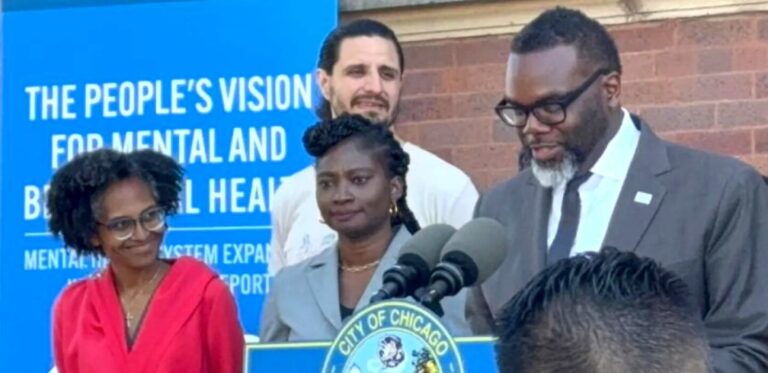In addition to fighting crime and closing loopholes and budget gaps, local government officials must now care more than ever about the psychological well-being of their communities. We typically leave the mental health of residents of our cities and towns to state and county governments, but I believe, based on my years as Deputy Chief Operating Officer overseeing the Human Services Department for a large county in Georgia and as an Atlanta City Council member, that there is a lot more that mayors, city managers, and council members can do. It helps residents find answers, deal with issues ranging from uncertain political times to the ongoing psychological impact of the pandemic, and move forward with their lives.
To begin, local officials can direct more public resources toward issues that affect mental health, such as enhancing public safety, narrowing health disparities, and reducing poverty. Regardless of who is in charge at the federal or state level, local officials working with each other across jurisdictional lines can have a positive impact on how voters feel about themselves and their governments.
As major local employers, governments can also ensure that their departments and workforces reflect the diversity of their communities, especially that female public servants feel safe, heard and respected. I often hear, for example, about problems with “masculine put-downs,” a bad habit of some men who interrupt women when they are trying to answer questions or who reject their points of view. All public sector workers should feel valued and supported by their leaders.
Another way public officials can help anxious residents feel better psychologically is by providing them with information and assurances about how they will deal with harmful policies coming from higher levels of government. For example, if local leaders believe that the federal government under a new administration will begin arresting and deporting undocumented residents, they should know and plan ahead what they can and should do. Among other things, they should consider whether to file legal challenges and direct law enforcement agencies not to cooperate with immigration enforcement officers — or to do nothing and suffer the consequences of allowing families to be torn apart. Clear and direct communication with voters is always best.
In the past, minority citizens could not truly rely on government at any level to protect their interests, civil rights, or lives. It took leadership from clergy, artists, and youth from organizations such as the Southern Christian Leadership Conference and the Student Nonviolent Coordinating Committee to force the courts, and later the federal government, to extend civil rights to minority citizens. We find ourselves in similar times today, where government officials and community leaders must band together and fight to protect hard-won freedoms. Public officials have powerful platforms that residents are waiting to use. A good and righteous struggle works wonders in improving one's psychological outlook and alleviating feelings of despair.
Public officials must also be mentally prepared—and prepare their constituents—to experience other types of repercussions from shifting federal priorities that have a direct impact on our communities' quality of life and psychological well-being. Let's take the climate crisis as an example: Under the Biden-Harris administration, local governments have received much larger grants to mitigate climate problems and make improvements to infrastructure and stormwater systems. Just this week, for example, public officials in Atlanta announced that the city received more than $528,000 from the US Department of Energy's Energy Efficiency and Conservation Grant Program to make the city more resilient to climate change. Given climate change skepticism among some of President-elect Donald Trump's Cabinet nominees, funding like the one Atlanta received, along with positive relationships with federal officials, may be a thing of the past.
Local government officials in the blue and purple parts of our nation must prepare for these shifts and their impact on residents and public employees alike. As the new administration begins to take shape in Washington and rolls out new policies, local officials must keep a sharp eye on those that are likely to have a negative impact on their communities. They need a plan that helps them overcome obvious bad policies and allocates funding to address strong legal challenges when necessary. The key to all of this is making sure we all maintain the clarity of mind and thought needed to weather the storm and hopefully better days ahead.
Management opinion columns reflect the opinions of their authors and not necessarily the opinions of management editors or management.
